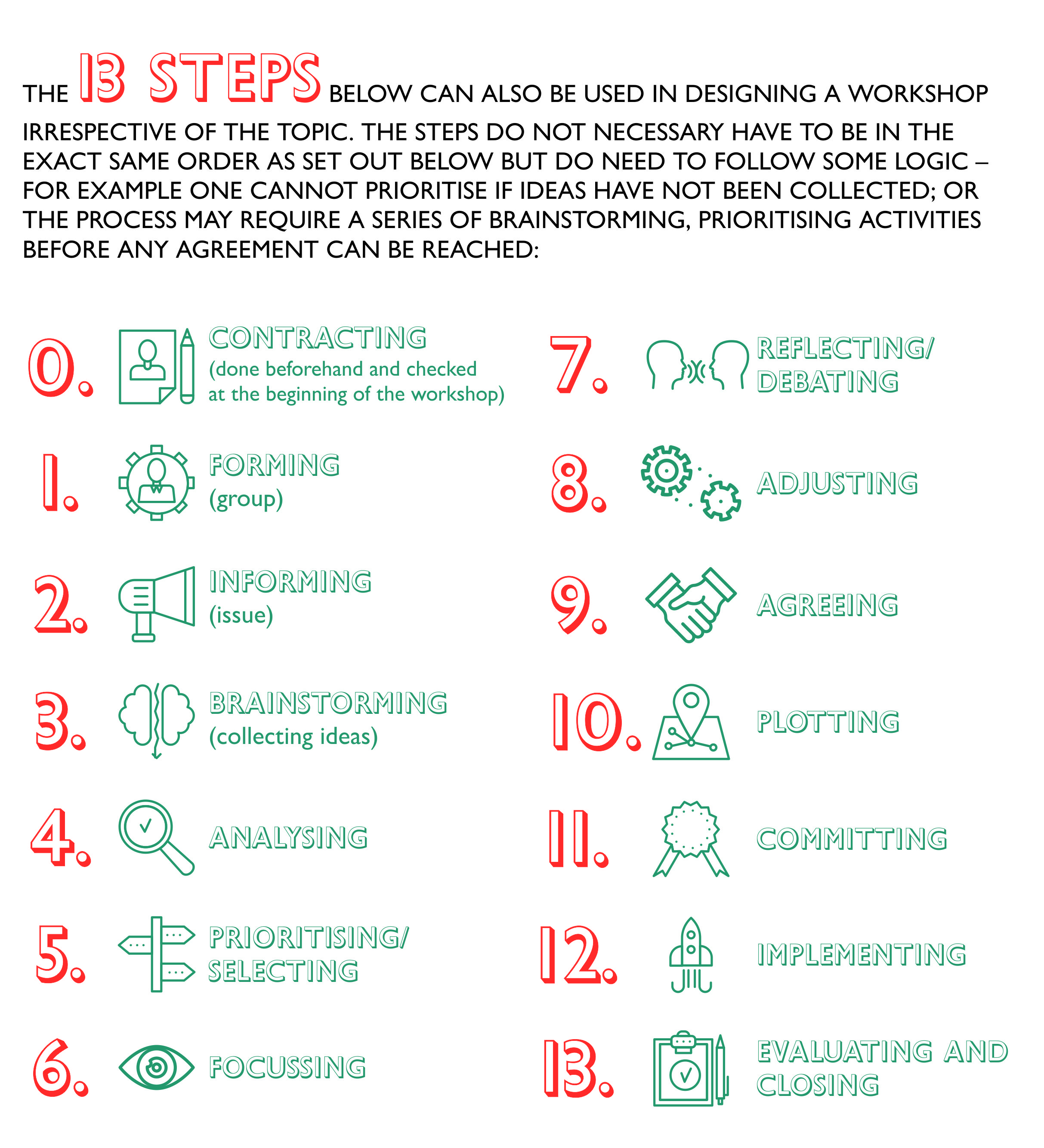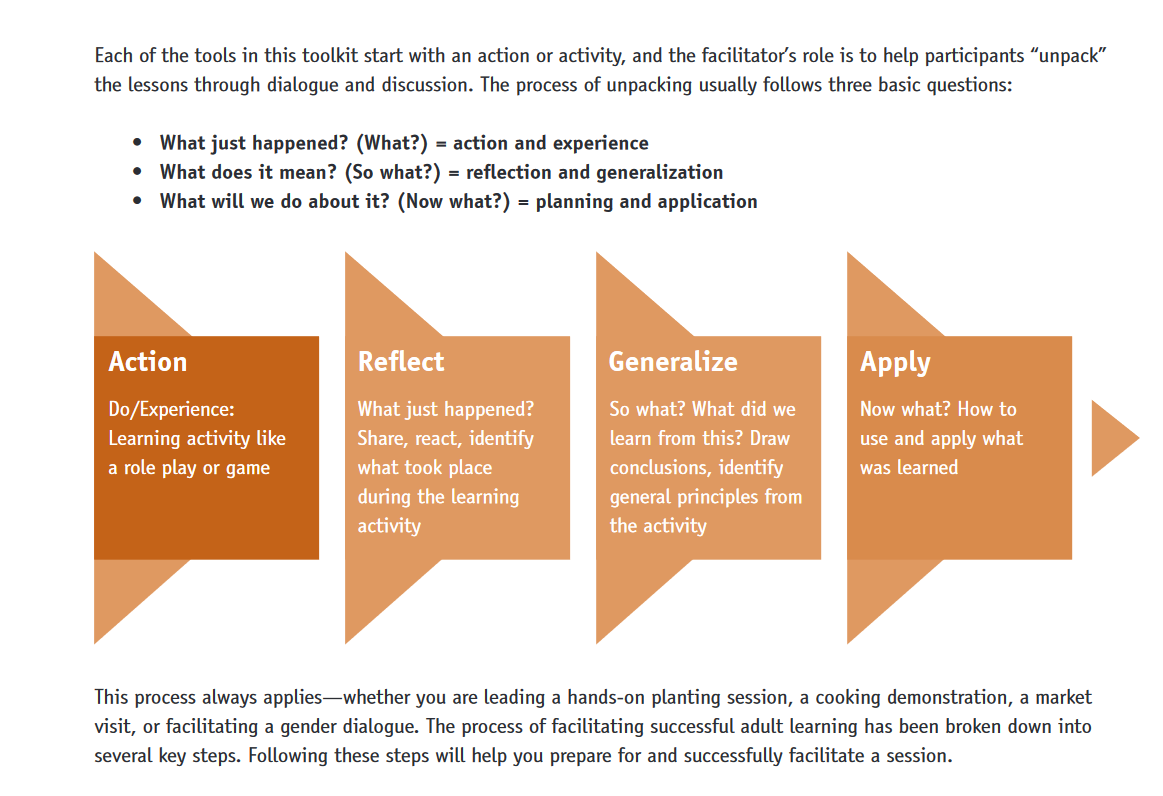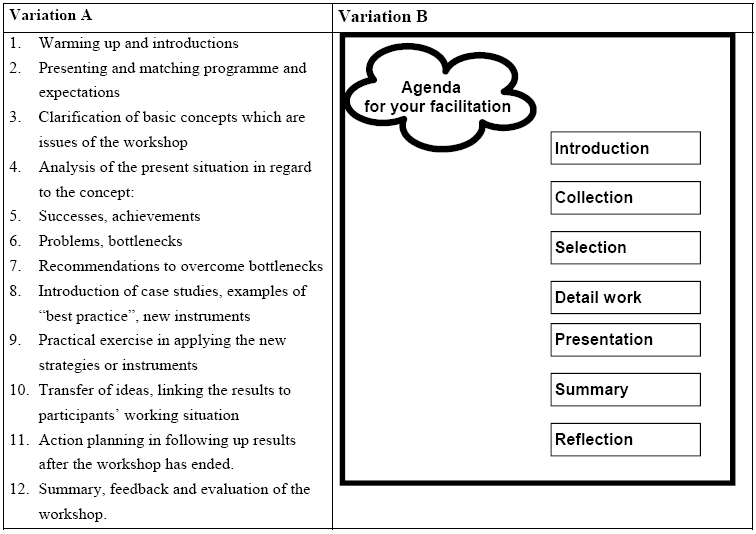All those involved in organising and facilitating a workshop or conference will need to know exactly what is planned when and who is responsible for the smooth running of the different steps. Give everyone involved a director’s plan.
Participatory workshops have some typical sequences:
The facilitator prepares the process and is responsible for the agenda, for steering the group towards a result, for reaching the targets and for the well-being of the group. He or she is not, however, responsible for providing the actual content or answers to the questions debated on in the group. A group will immediately catch on to the fact that a facilitator is trying to position his own thoughts and opinions and will often categorically oppose them, even if the ideas would have a good chance of acceptance if voiced by a participant. Be clear in your suggestion for the run of process and open for the content, solutions and ideas of the learners.
Different methods can be used to assure maximum participation during the sessions. These include feedback procedures, which give learners the chance to speak of their observations and feelings and to redirect the course of the workshop, if necessary. A change in methods helps to keep learners alert.
- People remember 80% of what they discover and do by themselves. Find out where learners are and start from there. Allow learners to discover as much as possible by themselves. This encourages sharing of knowledge and expertise with colleagues. Give learners the roles of experts in their sub-groups. This will create a feeling of ownership and motivation.
- People tend to lose concentration after listening 20 minutes to presentations of the same style. Ensure that learners can participate!
- Start by asking for the successes when learners are asked to exchange their experience. Proceed to ask about failures or problems after having laid grounds with the success. Do not end with naming failures because it is a pessimistic result, but always ask for some recommendation of steps necessary to overcome the problems. This will create a forward-looking, action-oriented attitude.
- Do not become too ambitious in your objectives and topics to be covered. Be realistic about the time people need to grasp new theoretical ideas or about the time people need to get settled and to exchange their experiences. It is better to cover some points in depth, than to hurry through many points without new insights.
- Always allocate some spare time for extra discussion which might take an unplanned direction or for peoples’ unbelievable way of loitering around coffee tables after the gong has gone for the next session!

This will mean that any workshop will need a concept or workshop design which will probably cater for these 13 steps – all in alignment with the preceding contract and many of which need to be repeated within the single workshop.

